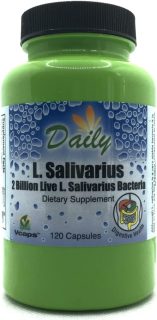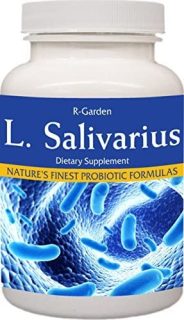Probiotics are defined as good bacteria that are believed to help maintain a healthy balance in your body. These naturally occurring microorganisms can be found in yogurt, fermented foods, and dietary supplements, and it’s fairly easy to incorporate them into your routine. From helping your body digest food to creating vitamins, the benefits are endless. And according to recent research, they may also be helpful in fighting gout attacks.
What is Gout?
Gout is a common and complex form of inflammatory arthritis. In chronic and progressive conditions, it tends to affect one joint at a time, typically the big toe joint. It can also impact your fingers, ankles, elbows, and wrist. It causes sudden tracks of severe pain and swelling, also known as “gout attacks”.
Over 41 million people globally are affected by the disease.
While anyone can develop gout, men and people in ethnic minorities, specifically black people, showcase a higher prevalence of the condition. While it isn’t fatal, this condition can be extremely painful and debilitating. It can also increase your risk of dying from conditions such as heart disease, stroke, and kidney disease.
Gout Attack and Accompanying Signs
A typical gout attack is characterized by a sudden onset of severe pain, often happening overnight. Common symptoms typically include:
- Intense pain in the affected joint
- Red, shiny skin over the affected joint, which can become tender and warm
- Hard lumps develop in the joints, skin, and soft tissue surrounding them
- Limited range of motion in the affected joint
- Lingering discomfort after severe pain subdues
A typical gout attack reaches its peak 12–24 hours after its initial onset. It then begins to slowly resolve, taking approximately 7–14 days.
Conditions that mimic gout
It is important to note that there is a wide range of conditions that can mimic gout. These include:
- Cellulitis
- Appendicitis
- Chronic fatigue syndrome
- Alcoholism
- Septic arthritis
Self-diagnosing can be extremely dangerous, so if you notice any of these symptoms, you should ask your doctor to conduct a test (whether it be fluid, blood, urine, x-ray, or ultrasound test). This will help you establish precisely what is affecting you, and what treatment you should undergo.
What Causes Gout?
Gout develops due to a build-up of a substance known as uric acid in the blood. This is a condition known as hyperuricemia. Uric acid, which is also known as urate, is created every day when our bodies break down purines. Purines are one of the most common chemical compounds on the planet, naturally produced, and also found in certain foods and drinks.
We all have urate in our blood. As urate levels build up, your body gets rid of any extra amounts through your kidneys in your urine. If your body is producing too much, levels start to rise, causing the formation of uric acid crystals. This build-up creates sharp, needle-like crystals lodged in joints. This causes sudden, severe pain accompanied by swelling, redness, and changes in the movement and use of the affected joint.
Things that may increase your chances of getting gout include:
- Kidney problems
- Obesity
- High blood pressure
- Eating foods that can cause uric acid buildup (including seafood and red meat)
- Drinking beverages that have been sweetened with fruit sugar fructose
- Moderate to heavy alcohol consumption, especially of beer and spirits
- Lead exposure
- Certain medications that increase uric acid (including levodopa, low-dose aspirin, and diuretics)
There is currently no cure for gout
However, this long-term disease can be controlled by using medication and prioritizing exercise. According to Dr. Tan York Kiat from the Department of Rheumatology and Immunology at Singapore General Hospital (SGH), “lowering the level of uric acid is key to treating gout…”
He further adds that “by lowering the uric acid in the blood to a certain level, the chance of getting a gout attack is drastically reduced.” Drugs commonly opted for include allopurinol and febuxostat.
However, with the side effects they come with, researchers have begun searching for a better alternative. This has led to the discovery of a probiotic strain that not only reduces gout attacks but the need for gout-related drugs too.
The Medicinal Probiotic
In a study by Complutense University of Madrid in Spain, researchers looked at a specific probiotic known as ligilactobacillus salivarius (L. salivarius). Ligilactobacillus salivarius is a friendly bacterium that is normally found in the gastrointestinal tract. Studies have shown that this probiotic can protect the intestinal barrier, decrease inflammatory cytokines, and enhance the abundance of the gut microbiota. Now, it has been found to be effective in lowering gout attack occurrences.
Before beginning the study, researchers identified L.salivarius CECT 30632 as the most effective probiotic strain for converting uric acid. A group of 30 randomly selected participants with hyperuricemia and a history of recurring gout attacks were included in this trial. Half of these participants were given probiotics, while the other half were given allopurinol, for 6 months.
 What the research says
What the research says
Research analysis showed that the group using the probiotic showed a significant reduction in gout episodes and the use of gout-related drugs. Along with this, they showcased an improvement in blood parameters linked to oxidative stress, liver damage, and metabolic syndrome.
This isn’t the first time research has highlighted the possibility of using a probiotic to aid gout. In 2019, research came from the Zabolotny Institute of Microbiology and Virology, National Academy of Sciences of Ukraine. As the first study author, Rostyslav Bubnov, Ph.D., and his team studied the effects of probiotic therapy on adults with obesity, gout, and gout-related kidney disease. It found that “short-term individualized probiotic therapy is effective to treat signs of (metabolic syndrome) and hyperuricemia.” It was also observed that probiotic therapy can successfully restore the function and structure of the damaged kidney.
The Link Between The Gut and Gout
According to Sonya Angelone, a registered dietician nutritionist, “People with inflammatory arthritis have also been shown to have inflammation of the intestinal tract.” This links to research that has indicated that people with gout have low levels of “good bacteria” in the gut. This is why it has been suggested that probiotics can help increase levels of beneficial bacteria. This not only improves gut health, but can also reduce the frequency of gout flares and painful symptoms.
How Safe Are Probiotics
Since microbes in probiotics already exist naturally in your body, probiotic foods and supplements are generally considered safe. However, they aren’t free from potential side effects. One of these potential side effects is dysbiosis.
Dysbiosis is an imbalance resulting from a shift in composition or decrease in the diversity of your microbial community. This has been linked to various chronic health problems, including obesity, bowel disorders, cardiovascular disease, and even cancer. M. Elizabeth Swenor, D.O., likens dysbiosis to a garden. She says “if you continue to seed your garden with one certain flower, that one will grow and potentially overpopulate and push out the other flowers.”
However, a 2021 study seems to say otherwise. In the study of 30 individuals, one-half of the group was given a probiotic, while the other half was given a placebo. It was recorded that there was no significant difference in gut community diversity between the probiotic and placebo group. However, these results are only based on self-reported healthy individuals. This means there is no guarantee that using L.salivarius can impact your microbial gastrointestinal diversity.
Probiotic Safety is Individualized
It is important to remember that the benefits or dangers of probiotics depend largely on an individual’s state of health, and the existing treatment of the said individual. For those who have serious medical illnesses, are very weak, or have overwhelming infections, probiotics can be harmful. Those who should avoid using probiotics include:
- People who are severely immunosuppressed
- Post-operative patients
- People who have pancreatitis
- People who are critically sick
- Patients who are in intensive care
Probiotics can have mild side effects
In healthy people, probiotics can still cause a range of mild side effects. These include:
- A temporary increase in gas and bloating
- Headaches (due to containing biogenic amine, which can excite the central nervous system and trigger headaches in some people)
- Allergy-like reactions (such as redness and swelling, itching, a rash, watery eyes, and trouble breathing). This is due to the increase in histamine levels.
Which Form Should You Consume?
L. Salivarius as a probiotic can be obtained from various foods. These include:
- Yogurt
- Tomatoes
- Bananas
- Chicory root
- Artichokes
- Sourdough bread
- Garlic
- Asparagus
- Kimchi
The most common form is supplements. Below are two options:
R-Garden L. Salivarius
Probiotics as Alternative Medicine
Probiotics have been shown to block chronic disease pathways, including obesity, cardiovascular disease, and respiratory infections. In fact, they’ve even been proposed as a “non-invasive alternative therapy” for antibiotics. With research indicating that they can aid gout, probiotics are truly medicinal. But as we always say, “health care is never one-size-fits-all”.
You should consult your doctor before implementing probiotics, especially since they directly impact your microbial gastrointestinal content.
This must be prioritized if you wish to use them for medicinal purposes, or for the treatment of a condition, such as gout. Your doctor should look at your overall health before determining if this would be suitable for you, as the smallest things can cause severe adverse reactions.
References
- Rodríguez, J.M., Garranzo, M., Segura, J., Orgaz, B., Arroyo, R., Alba, C., Beltrán, D. and Fernández, L., 2023. A randomized pilot trial assessing the reduction of gout episodes in hyperuricemic patients by oral administration of Ligilactobacillus salivarius CECT 30632, a strain with the ability to degrade purines. Frontiers in Microbiology, 14, p.208.
- James, A., Ke, H., Yao, T. and Wang, Y., 2021. The role of probiotics in purine metabolism, hyperuricemia and gout: mechanisms and interventions. Food Reviews International, pp.1-17.







![women [longevity live]](https://longevitylive.com/wp-content/uploads/2020/01/photo-of-women-walking-down-the-street-1116984-100x100.jpg)









